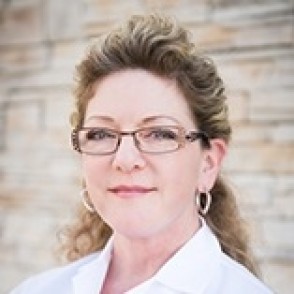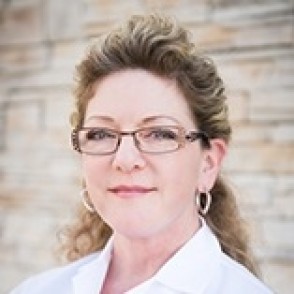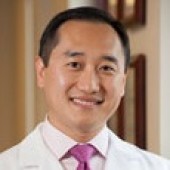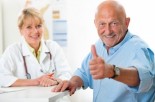Inactive (722)
Children categories
University of Virginia Health System (175)
https://docs.google.com/spreadsheets/d/1JkoiKFuCQmWJsu92gIyaRHywp6JgkKouIV5tbKYQk2Y/pub?gid=0&single=true&output=pdf
View items...Saint Peter’s Better Health Update (10)
Saint Peters Health System
Saint Peter’s Better Health Update
Florida Hospital - Health Chat (19)
$current_analytic_report = "https://docs.google.com/spreadsheets/d/1JkoiKFuCQmWJsu92gIyaRHywp6JgkKouIV5tbKYQk2Y/pub?gid=0&single=true&output=pdf";
View items...Additional Info
- Segment Number 5
- Audio File city_hope/1524ch1e.mp3
- Doctors Meyering, Elizabeth Lynn
- Featured Speaker Elizabeth Lynn Meyering, MD
- Guest Bio E. Lynn Meyering, M.D., is an Assistant Clinical Professor in the in the Department of Medical Oncology & Therapeutics Research at City of Hope’s Simi Valley location. Dr. Meyering joined City of Hope from North Valley Hematology and Oncology Group, located in Simi Valley, California. Prior to that, she was appointed as faculty at UCLA-Olive View Medical Center as a Assistant Clinical Professor, and she continues her services now as a Volunteer. Dr. Meyering completed her undergraduate degree in microbiology at California State Polytechnic University, and medical school at Albany Medical College in New York. Following medical school, she completed her internship and residency in internal medicine at UCLA-Olive View Medical Center in Sylmar, California. Dr. Meyering is board certified in medical oncology, hematology and internal medicine, and is an accomplished and experienced clinician and teacher. She has a particular interest in breast cancer and survivorship issues.
-
Transcription
Melanie Cole (Host): When you get sick, you want to know that your doctor is helping you and your unique set of circumstances. We are all different and so are our cancers. What is meant by personalized medicine? We’ve heard this term before. My guest today is Dr. Elizabeth Meyering. She’s an oncologist and Assistant Clinical Professor who practices at City of Hope - Simi Valley. Welcome to the show, Dr. Meyering. Tell us about how unique each person is and their cancer. It’s not a one size fits all, is it?
Dr. Elizabeth Meyering (Guest): You know, Melanie, no. It’s not. I think that our notion of personalized medicine has changed a lot over the years. Of course, we are all going to hope that our doctors are going to select treatment for us based on our characteristics. We are not all created equal. As we learn more and more about the human genome and about the genetics of individual cancers, we find that we can actually identify targets that may be more effective and less toxic because we are just targeting cancer cells. So, I think the notion of personalized medicine has changed quite a bit over the past several years but even within that personalized medicine where we are selecting things based on science, there’s still an art, I think, to creating a treatment package which is unique to the particular patient.
Melanie: Dr. Meyering, since tailoring that medical treatment to the individual characteristics or needs of a patient or the certain type of cancer, I understand that everyone is unique and different but you only have a certain number in your arsenal of things that you can do. How do you make it different for each person based on whatever it is that they’ve got going on?
Dr. Meyering: Well, certainly, we have to make decisions on what our goals of the treatment are. If the treatment is curative, then we’re willing to put someone through quite a bit more side effects as opposed to someone where we are just trying to help them live longer, feel better, knowing that we may not cure their cancer. Now, that’s basically trying to select medications with their toxicity levels in mind. When it comes to targeted therapy, that’s actually something where it’s a little bit more elegant and I think that with the targeted therapy that the side effect profiles are so benign--I don’t want to say completely benign, but better. Then, we have more options available and they’re broadening on an ever increasing rate. I can’t even open up a journal today without discovering that there is a new target that we can aim for with these targeted medications. So, certainly, it’s a very complicated notion trying to put together a package. Like I said, the difference is what our goals of the treatment are and also what the family and the patient’s goals are.
Melanie: Do you think, in your opinion, that as personalized medicine becomes more advanced that a pharmagenomics, genomics that these things might happen one day that would be tailored to our genetic makeup? Do you think the pharmaceutical companies are going to be able to, with the help of you oncologists, make drugs and things that are targeted to our specific genetic makeup and whatever cancer we might have?
Dr. Meyering: That is a really good question and I think the answer is “yes”. Maybe not to quite such a simple degree but, for example, we know that women who carry the BRCA mutation can be treated with different groups of medications that are going to have a better chance of having efficacy as opposed to women who are not BRCA mutation carriers. So, I think that that answer is “yes”. The problem, really, is because each individual is unique and different, so are their cancers. So, we have to both target the patient and the cancer. If I could just pause for a moment and say that we are making some dramatic headway with immunotherapy and that is something where we are more targeting the patient. So, I think that the ultimate answer to the question is “yes” and that is probably going to be the big wave of the future and I think going to be one of the wonderful and enormous milestones in American or human medicine, I think.
Melanie: So, in this multi-faceted approach to patient care that is personalized medicine, do you see that this offers the potential to detect the disease earlier? Is there risk assessment, prevention, detection or is personalized medicine mostly geared toward treatment once you’ve developed something?
Dr. Meyering: It’s more geared toward treatment once they have it but I will tell you that people who are known to be carriers of certain genetic abnormalities, certainly, they have heightened screening. Some of the conditions that we are aware of that are significantly related to increased risk of cancer are things like the Lynch Syndrome, which increases GI type cancers, as well as the BRCA mutation, which increases breast and ovarian cancers, among others. Certainly, when people are known to be carrying these mutations, certainly we have heightened surveillance for them. I suppose you could considered that also as part of personalized medicine. Now, whether or not having that knowledge in the future means that we may be able to do things to prevent their cancer, stay tuned. I don’t know that we are there yet but, certainly I think we will be moving that way in the future. I think it’s a little bit of a slippery slope when we start thinking about do we test everybody and then what does insurance do about that? I think we have to be careful not to fall down that slippery slope. Certainly, again, I’ve mentioned it on other segments that nurture and nature is certainly very important. Just because something is there genetically doesn’t mean that it will happen biologically. So, we have to be careful about that. Certainly, though, stay tuned for that.
Melanie: Well, I’m interested that you mentioned insurance companies in this multi-disciplinary approach. Do you think that as you work with various members of your team--that that team together to help the patient receive really the best outcomes--do you think along the lines that the insurance companies will jump onboard for this personalized medicine and see that it will save money in the long run to give this more targeted, personalized care?
Dr. Meyering: I’m hoping so. That is a topic of debate. Certainly, getting insurance or appropriate reimbursement, not only for the medications but also for the testing that may be necessary, is a hurdle that is – I think we are making some headway and certainly they are warming up to the idea because having more targeted therapy means having more efficacious therapy. Certainly treatment with therapies that aren’t working just cost money and does not do anything for the patient. I think that that is an area where there are many people working on but, hopefully, I think that once we have good tests that actually identify meaningful targets, meaning that we have a medication which may be efficacious in that circumstance, if we can sort of marry those together, I think we have a better chance of success. From the insurance company’s standpoint, I do understand because with the escalating healthcare costs these tests are not inexpensive. A lot of times people think, “What is it a couple of hundred dollars?” No, these are in the thousands, typically. So, I understand from their perspective but we do need to really have the bottom line in mind and I’m thinking that they are beginning to come on board with this.
Melanie: In this age of personalized medicine, Dr. Meyering, in just the last minute or so if you would, give your best advice for what you see as the future of personalized medicine and why people should come to City of Hope for their care.
Dr. Meyering: Well, in my opinion, having the resources and the clinical trials available to identify targets, to find out whether or not those targets are able to be appropriately utilized or manipulated, I think that really an academic institution is a good way to go. It’s not for every person but certainly if that is available you want to know about it and you want to be educated about it and you want to be a good consumer and a good advocate for your own health. I think having all of those resources, whether or not you need them at the time, I think is valuable. I would strongly recommend that you learn everything you can about your cancer, should you be diagnosed, to your satisfaction. I do believe that we have the ability to offer all of those specific types of tests and clinical trials that would be helpful should they be needed by the individual.
Melanie: Thank you so much for such great information. You’re listening to City of Hope Radio. For more information you can go to cityofhope.org. That’s cityofhope.org. This is Melanie Cole. Thanks so much for listening.
- Hosts Melanie Cole MS
Additional Info
- Segment Number 4
- Audio File city_hope/1524ch1d.mp3
- Doctors Meyering, Elizabeth Lynn
- Featured Speaker Elizabeth Lynn Meyering, MD
- Guest Bio E. Lynn Meyering, M.D., is an Assistant Clinical Professor in the in the Department of Medical Oncology & Therapeutics Research at City of Hope’s Simi Valley location. Dr. Meyering joined City of Hope from North Valley Hematology and Oncology Group, located in Simi Valley, California. Prior to that, she was appointed as faculty at UCLA-Olive View Medical Center as a Assistant Clinical Professor, and she continues her services now as a Volunteer. Dr. Meyering completed her undergraduate degree in microbiology at California State Polytechnic University, and medical school at Albany Medical College in New York. Following medical school, she completed her internship and residency in internal medicine at UCLA-Olive View Medical Center in Sylmar, California. Dr. Meyering is board certified in medical oncology, hematology and internal medicine, and is an accomplished and experienced clinician and teacher. She has a particular interest in breast cancer and survivorship issues.
-
Transcription
Melanie Cole (Host): When people are newly diagnosed with cancer, information becomes quite a whirlwind and the question so many people ask themselves is, “Why me? I eat right. I exercise. No one in my family has cancer.” There are so many questions that people throw at themselves. My guest today is oncologist, Dr. Elizabeth Lynn Meyering. She’s an Assistant Clinical Professor who practices at City of Hope - Simi Valley. Welcome to the show, Dr. Meyering. That big question. People get cancer and the first thing they say is, “I didn’t expect this” or “Why me?” Tell us about that question.
Dr. Elizabeth Lynn Meyering (Guest): Oh, it’s so nice to speak with you again, Melanie. That is a question that I hear almost every single time someone walks into my office and I think that, really, we try to look for a reason. It’s really very true that there is some nature and there is some nurture in why we develop cancer. Of course, the hard science part of it is, and I can go through a lot of different things, oh, there was too much sun exposure and you got damage to your DNA or you had exposure to radiation. All sorts of things. The reality is that most of these events are random events. There is a very small subset of people who do have genetic mutations but this is really the minority. It’s very natural for us to want to blame something and the reality of it is that, like I said, it’s a very random event. We have to move past that and figure out how to live our lives in a way that improves our risk for the future without dwelling on the past or the things that they could’ve or should’ve done.
Melanie: Dr. Meyering, I hear from so many of my docs that a positive attitude when dealing with cancer just goes a lot longer than people realize when people ask themselves that “Why me?” and they blame themselves. Can that negatively affect their outcome?
Dr. Meyering: I do think so and I think there’s multiple reasons that can happen. The first thing that can happen is your ability to tolerate the treatment that may be necessary to put your cancer into remission. When people have a very negative attitude, they often feel like “What’s the point, why should I do all these things? It’s going to happen anyway. It shouldn’t have even happened in the first place.” Not going forward with the treatment that is recommended by your oncologist is a bad idea because often to not do that treatment would be to increase your risk of reoccurrence in the future. The other thing that happens with having a negative attitude is certainly when people have a negative attitude it affects a lot of our catecholamines and sort of our epinephrine levels and our cortisol levels which certainly have an awful lot to do with the immune system. It’s a little bit subtle and I don’t know that we could ever point fingers at it but to have a negative attitude may actually increase your risk of cancer on some level by changing and altering the levels of cortisol in our bodies.
Melanie: So, cancer affects the whole family, not just the person who is dealing with it and starting to go through treatment. When we do that “Why me?”--when we blame ourselves--does that carry over to our family saying “What did you do to cause this?” or “Is it going to happen to me?” Does this sort of spiral down the family chain?
Dr. Meyering: Sometimes it really does and I see an unfortunately large number of cases where the family members start looking “Well, if they wouldn’t eat all that sugar” or “If they wouldn’t have done all that stuff, they wouldn’t have gotten cancer”. I think this is also very natural because the whole family is affected by the cancer and everybody grieves and there’s also a component of fear. “What can I do if that happened to my mom or my dad or my sister or brother? What can I do to prevent that and what did they do that caused it so that I cannot do that in the future?” That’s also a very deadly or dangerous type of an attitude because, like I said, most of these are random events and most of the time, there is not much that the person did to “deserve” their cancer. There are certain things, though, that I do recommend that people do and these are very obvious, I think. Things like smoking. I mean, smoking is the leading cause of heart disease and cancer and lung disease. Cancer from smoking is very serious and that is certainly something that is controllable and that falls into the nurture category. Other things that are probably less important but do make a difference is maintaining healthy lifestyles. That means eating good healthy foods, getting plenty of exercise, getting enough sleep. Those things certainly improve our immune system and help us resist the development of cancer. So, I usually try to focus on those things with the family as opposed to “Well, you’ve got cancer because you, I don’t know, you did something or you didn’t do something.” That’s usually helpful to put a positive spin on it.
Melanie: What about psychological services during treatment because sometimes cancer treatment can be as difficult as the disease itself and if you’re already going into it with this attitude of “I don’t even know if this will work. I don’t know why this happened to me”, what do you recommend to your patients about getting some help and getting some psychological counseling to help them get past this and look towards the future?
Dr. Meyering: I’m a strong supporter of this. One of the problems that we have is, of course, the social stigma. Of course, it’s better now than it was in years past but still there are many who are very reluctant to seek assistance from a psychologist during this time. There are specially trained psychologists who, their whole focus is on patients who are undergoing treatment for cancer, or, even if they’re not under treatment, dealing with the sequelae of that. To really focus on cognitive behavioral changes is a huge positive and people do so much better when they’re really struggling with these issues. If I could just get them to go that would be, I think, really the biggest hurdle to conquer.
Melanie: Well, families can go together because I imagine it’s scary for the children as well or the spouse of somebody dealing with cancer and going through the treatment. Then, there’s all the side effects, Dr. Meyering. So, give your best advice about dealing with those side effects and not letting your own devil in your head, negative self-talk that we all do so often, get the better of you when you’re going through some difficult treatments.
Dr. Meyering: That is so elegantly said – the devil in your head – because that is so true. I have to always remind my patients and their family members that the side effects are normal and expected and they’re temporary. A lot of the things like hair loss and fatigue, which happens to a majority of people, those things are temporary and they do improve. There’s quite a bit of fear. “Am I not going to be able to be calm, the person that I was before?” Am I never going to be normal again?” It’s very important, I call it stinkin’ thinkin’. When you think that you’re not going to be able to recover, your chances of recovery are lower. I think having a positive attitude really helps to combat that devil in your head. I can’t stress that enough--that positive thinking is very helpful. I see it time and time again in my patients, the ones who come in with a very positive, can-do attitude regardless of their side effects, they come and they are like “I’m going to beat this. I’m going to do what I have to do” and they do great. The folks who have a little more negative thinking, who are not so optimistic that they are going to be okay really struggle quite a bit. There’s, I think, an increase incidence of depression and anxiety and all kinds of different problems within the family when folks have that stinkin’ thinkin’.
Melanie: Well, Dr. Meyering, if you would in just the last few minutes, give your best advice to people that are newly diagnosed. As a survivor of breast cancer yourself, tell the listeners, if you would and if you wouldn’t mind, how you managed to get through it and have this positive outlook that you are that I’m sure makes you just a wonderful doctor to deal with.
Dr. Meyering: [laughter] Well thank you for saying so. You know, it’s a little tricky because I think I went through my own difficulties during that first year. The first year is very hard and you can’t help but have those little thoughts creep into your head where you think, “Well what is going to happen? This cancer is going to come back anyway.” I would really recommend that you focus on today and looking forward. It’s true, you can never push that cancer away completely. It’s always going to be in your rearview mirror. You’re always going to see it. It’s ready to tap on your shoulder but it doesn’t have to be in front of you. I think it’s very important to live our lives as if we are going to live a normal life. If you live your life like you’re going to die from cancer then you’re never going to live your life. The majority of people are cured and do great. You have to remember those things and if it happens, then you deal with it. But to deal with it before it has happened is very non-productive. I think that’s how I really dealt with it, was knowing that if it happens then I will do what I need to do, but for now I’m going live my life and I’m going to enjoy myself and I’m going to do all the things that I have always wanted to do regardless of my cancer.
Melanie: What an amazing segment and such great information. We certainly applaud you, Dr. Meyering and what an amazing doctor that I know that you are. You are listening to City of Hope Radio and for more information on Dr. Meyering you can go to cityofhope.org. That’s cityofhope.org. This is Melanie Cole. Thanks so much for listening.
- Hosts Melanie Cole MS
Lymphedema is a condition in which fluid (lymph) is retained in the tissue and causes swelling (edema), often in the arms or legs.
Additional Info
- Segment Number 2
- Audio File managing_cancer/1528ct1b.mp3
- Doctors Liu, Daniel
- Featured Speaker Daniel Liu, MD
-
Guest Bio
Initially trained as a concert violinist, Dr. Daniel Liu attended Hendrix College in Conway, Arkansas as a music scholar. He then turned his focus to medicine. He says, “I wanted to make a more direct impact in people’s lives.”
Dr. Liu completed a bachelor’s degree in chemistry in 2002 and earned a medical degree at Washington University in St. Louis in 2006. Dr. Liu then completed an internship and residency in plastic surgery at the University of Washington in Seattle, where he also served as Chief Resident in the Division of Plastic Surgery.
Dr. Liu has worked as a plastic surgeon at several large hospitals in Illinois. He joined CTCA in August 2014. -
Transcription
Melanie Cole (Host): Cancer Treatment Centers of America at Midwestern Regional Medical Center, , has expanded their comprehensive lymphedema treatment program to offer two innovative surgical options for patients suffering from lymphedema. My guest today is Dr. Daniel Liu. He's a plastic and reconstructive surgeon at Cancer Treatment Centers of America in Northern Illinois. Welcome to the show, Dr. Liu. Tell us a little bit first about what is lymphedema.
Dr. Daniel Liu (Guest): Good morning, Melanie. Thanks for having me on the show. First of all, I just want to say that lymphedema is an unrecognized and unpopular thing to talk about because it's not at the top of every patient's mind when they are undergoing cancer treatment. However, it is a very common phenomenon that can happen after treatment of many types of cancers. The most common type of lymphedema that we see here in the United States is after the treatment of breast cancer. Now, when a woman is diagnosed with breast cancer she often has to undergo a series of treatments both including surgery, sometimes radiation and oftentimes chemotherapy. When the lymph nodes are removed as a treatment of the armpit area or the axilla, both with surgical removal as well as radiation therapy to these areas, one of the side effects can be swelling in the affected arm and that is what we see after breast cancers, what's called post-mastectomy lymphedema.
Melanie: So, what is the general cause? You mentioned when lymph nodes are removed, then what actually happens, Dr. Liu?
Dr. Liu: Well, first let me say that lymphedema can be caused by many things and actually across the world the most common cause is a parasitic infection that affects the lymph nodes or lymphatics. The normal function of lymph nodes is to filter extra fluid throughout the body and drain extra fluid from the extremities towards the central trunk of the body. When this is not functioning properly then fluid can back up within the extremities, or actually any part of the body. That leads to symptoms of swelling, redness, heaviness and occasionally, infection.
Melanie: So, what happens if it's left untreated? Then, tell us is there something we can do to prevent lymphedema?
Dr. Liu: When left untreated, lymphedema is, as far as we know, a progressive disease meaning that it slowly and gradually gets worse over time. Unfortunately, there’s no cure for lymphedema. However, there are standards of care that involve physical therapy and some neurosurgical treatment. After treatment of breast cancer by removing the axillary lymph nodes, we oftentimes do maneuvers to try to prevent lymphedema. One of these things is to prescribe a compression garment for the arm called a lymphedema sleeve. That's something that we prescribe for all of our patients who have had axillary lymph nodes dissections as a prophylactic measure.
Melanie: So then, speak about treatment a little bit. If someone comes to you what do you do for them?
Dr. Liu: First and foremost, we have to make sure that patients are appropriately evaluated and treated by a physical therapist who is qualified to deal with lymphedema and these are called clinical lymphedema therapists who have specialized training. Currently, the treatment of lymphedema centers around multimodalities, from physical therapy, including a combination of compression therapy, garment use, lymphatic pump use, as well as manual lymphatic drainage which is a type of massage. Patients can benefit from a combination of these therapies and there's no proof that one is superior to another. However, the use of these multimodalities can result in good treatment and stabilization of a patient's lymphedema symptoms.
Melanie: Tell us a little bit about the innovative microsurgery for lymphedema patients at Cancer Treatment Centers.
Dr. Liu: Over the past couple of decades, plastic surgeons throughout the world have developed newer techniques to try to attack these problems from a surgical standpoints and with better understanding of both lymphatic anatomy as well as the pathophysiology behind lymphedema. We are trying to do functional surgeries that address the missing lymphatics and/or the missing lymph nodes removed during treatment of cancer. There's two separate procedures that we currently offer. One is called a vascularized lymph node transfer and the other is called a lymphovenous bypass or, more specifically, a lymphaticovenular bypass. These surgeries target different areas of the arm or the axilla with the goal of slowing down the progression of lymphedema.
Melanie: Is this a permanent solution? Is it something that comes back—lymphedema--or does this help it to go away?
Dr. Liu: Unfortunately, there is currently no cure for lymphedema, either from physical therapy or from these surgeries. However, we believe that by addressing lymphedema in earlier stages with some of these surgical therapies, we can slow the progression of the disease and sometimes cause some reversible changes.
Melanie: Tell us a little bit about physical therapy to help lymphedema. What's involved in that?
Dr. Liu: Well, physical therapy usually involves visiting a CLT, or a clinical lymphedema therapist, for, initially, up to three times a week. These physical therapists will fit our patients with specialized garments based on customized measurements as well as provide some objective measures of lymphedema, both in terms of actual measurements of the lymphs, as well as newer technologies that focus on the fluid content in the extremity. By using these objective measures, we can track a patient's progress and their response to physical therapy. Like I've mentioned before, there's a series of modalities that our physical therapists use in combination with these patients. A lot of this can be done at home by our patients with the use of appropriate garments as well as lymphatic pump devices that patients can purchase. It's important to know that physical therapy needs to be there to guide our patients to make sure they get the appropriate support as well as to follow their progress over time.
Melanie: In just the last few minutes, Dr. Lui, what should people suffering from lymphedema be thinking about when seeking care?
Dr. Liu: I think that a lot of people don't realize after their cancer diagnosis what the treatments entail and what the subsequent consequences may involve. Unfortunately, lymphedema is a relatively common phenomenon that happens after a successful treatment of cancer and it can be very debilitating in terms of quality of life. So, one of the important things is to recognize it early; to get into physical therapy early and to slow down the progression of lymphedema over time. With the combination of physical therapy and possibly surgery, patients can often realize a better quality of life by improving their symptoms from lymphedema.
Melanie: Thank you so much. You are listening to Managing Cancer with Cancer Treatment Centers of America. For more information you can go to cancercenter.com. That's cancercenter.com. This is Melanie Cole. Thanks for listening. - Hosts Melanie Cole, MS
Additional Info
- Segment Number 1
- Audio File managing_cancer/1528ct1a.mp3
- Doctors Kazmi, Shayma
- Featured Speaker Shayma Kazmi, MD, RPh
-
Guest Bio
As a medical oncologist and hematologist at Cancer Treatment Centers of America (CTCA), Dr. Shayma Kazmi individualizes each patient’s treatment plan to fit their specific needs.
Dr. Kazmi earned a bachelor’s degree in pharmacy with high honors at Rutgers University in New Brunswick, New Jersey. As well as membership in multiple honor societies, she received the CVS Pharmaceutical Excellence Award and Excellence in Pathophysiology and Pharmacology Award. To prepare for a career in medicine, Dr. Kazmi immersed herself in research as a Society of Toxicology fellow and neurotoxicology research intern.
A few months after receiving an undergraduate degree, Dr. Kazmi began medical school at Robert Wood Johnson Medical School, also in New Brunswick. During her time as a medical student, Dr. Kazmi served as a chairperson on the American Medical Student Association. She also worked as a staff pharmacist at Pathmark Stores Inc. -
Transcription
Melanie Cole (Host): Every cancer, like every patient, is different. Genomic tumor assessments help identify the DNA alterations that are driving the growth of a particular tumor. As we understand more about these gene mutations, we are better able to provide cancer treatment therapies that specifically target changes in the tumor's genomic profile. My guest today is Dr. Shayma Kazmi. She is a medical oncologist and hematologist at Cancer Treatment Centers of America. Welcome to the show, Dr. Kazmi. Tell us a little bit--people hear the word “genetics,” they hear the word “genomics.” Tell us a little bit about what this field of medicine is?
Dr. Shayma Kazmi (Guest): Overall, there is some confusion regarding genetics and genomics. Usually, when you use the term genetics, it refers to a person's own genetic makeup and the increased, perhaps enhanced, risk of certain cancer development. So, we talk about genetic testing as identifying what mutations you might be carrying that might make you a high risk of developing certain types of cancers. When we talk about genomics, and the language is confusing, however, we are talking specifically about the makeup of the cancer that you might have and how that can get analyzed to look for potential treatment options.
Melanie: So, genetics being the person's make up; genomics being actually the cancer's make up, yes?
Dr. Kazmi: Exactly.
Melanie: So, how do you study what makes up any particular type of cancer or tumor?
Dr. Kazmi: Well, that has evolved significantly over the last few decades. What we used to do and what is still done, is analyze the source of the cancers. So, one of the first things we do is, we review the cancer under a microscope, which is called the “pathology review” and we ascertain where the cancer originated from, such as, is it a breast cancer or is it a colon cancer or is it a lung cancer? Thereafter, we have sub-classifications within the original tumor site as to whether it is a non-small cell lung cancer or whether it's a small cell lung cancer. Then, further on we have sub-classifications. This is important because clinical research thus far groups patients in these kind of classifications to figure out which treatment works best for these patients. Now, what's different on the horizon is that we are not just essentially cocooning ourselves into evaluating cancers based on the origin site or the organ of origination but we are looking to see which mutation--what is the genetic makeup of the cancer--that drives the cancer growth. That's really the cornerstone of genomic testing.
Melanie: Who benefits from this type of advanced testing?
Dr. Kazmi: Really, we hope that everybody with cancer benefits from this testing because, ideally, what it would allow us to do is find the driver mutations that confirm which mutations drive the cancer growth and, ultimately, come up with treatments that are honed specifically at these specific mutations and will have limited side effects because it doesn't, basically, kill the organism--the human being--as well, alongside which is what chemotherapy generally does. It affects everything in a person that's rapidly dividing and has a lot more toxicities. These specific anti-bodies or genomically targeted drugs have the potential of being less toxic.
Melanie: Is this becoming more of a standard of care, Dr. Kazmi? Is this something that you would go to first or is it something that happens after other treatments and testings have not proven effective?
Dr. Kazmi: The short answer is both because there are certain mutations and certain types of cancers where this has been so effective that it really had to be done first. For instance, for non-small cell lung cancers, specifically adenocarcinomas. If you have an EGFR mutation, then you really ought to get the targeted treatment first. If you have an ALK mutation, then you ought to have that genetically targeted drug first. However, this is not cornerstone for everybody else who may have mutations that we haven't quite figured out yet. So, there are a lot of mutations that either we have not studied in detail in terms of getting a particular antibody or there are a lot of mutations we don't even have a drug, even in production in any pharmaceutical company, to target yet. So, for a lot of cancers this still remains experimental and still remains in the research arena but for a lot of cancers right now, it's happening and it's frontline. We hope in the next couple of decades that it becomes more frontline for more of the cancers.
Melanie: If you and your oncologist decide you are a candidate for genomic testing, how does that process work?
Dr. Kazmi: Actually, it's very simple. The patients themselves just have to consent to that and, really, the biopsy sample that, hopefully, has already been ascertained is what's sent off to a particular genomic testing lab. There are many, many options out there. It's a matter of a preference either of the oncologist, of the surgeon or the patient and depending on that, it's sent off to this lab for analysis and results usually come back anywhere from 3 to 4 weeks thereafter.
Melanie: So, not that really difficult. Now, just tell us what you're finding on the horizon in this field of advanced genomic testing?
Dr. Kazmi: What's really exciting is the fact that we are no longer tied to just doing research on breast cancer drugs because somebody has a breast cancer, for instance. What’s exciting is that if you have a particular mutation and that mutation is often found in, say, melanoma and there is a drug for that BRAF mutation in melanoma patients that works wonders, patients with other cancers who might have that mutation have access to those drugs as part of clinical trials a lot sooner. Traditional clinical trials take decades and decades to result anything meaningful and that's very, very costly and also takes a very long time. For patients who really need the treatment here and now, that's a very frustrating ordeal. So, what we are finding is that a lot more options are out there. I think a lot of pharmaceutical companies are also making more of these targeted drugs. So, there are more and more options for clinical trials, too. So, it's really very exciting.
Melanie: So, in just the last few minutes, Dr. Kazmi, if you would, tell the listeners what you really want them to understand about advanced genomic testing and why they should come to Cancer Treatment Centers for their care.
Dr. Kazmi: The most important thing that I would tell a patient with cancer is, get all the information. Get second opinions or third opinions all the time. There is a lot, a lot, a lot of progress in the world of cancer literally every day and every week I find that a lot of patients come from areas where the doctors are not well-informed about the recent advances. So, I would recommend that they get second and third opinions. I would recommend that they understand as much as they can about their cancer and their potential treatment options and when they do, they basically should treat where they feel most comfortable.
Melanie: Thank you so much for such fascinating information. You are listening to Managing Cancer with Cancer Treatment Centers of America. For more information, you can go to cancercenter.com. That’s cancercenter.com. This is Melanie Cole. Thanks for listening. - Hosts Melanie Cole, MS
The summer months can actually make certain illnesses feel worse.
Additional Info
- Segment Number 4
- Audio File health_radio/1525ml3d.mp3
- Featured Speaker Roshini Raj, MD
-
Guest Bio
 Dr. Roshini Raj is a board certified gastroenterologist and internist with a medical degree from New York University School of Medicine and an undergraduate degree from Harvard College. She is an attending physician at NYU Medical Center/Tisch Hospital and an Assistant Professor of Medicine at the NYU School of Medicine.
Dr. Roshini Raj is a board certified gastroenterologist and internist with a medical degree from New York University School of Medicine and an undergraduate degree from Harvard College. She is an attending physician at NYU Medical Center/Tisch Hospital and an Assistant Professor of Medicine at the NYU School of Medicine.
Dr. Raj has a special interest in women's health and cancer screening and has published several research articles on colon cancer screening.
Dr. Raj is a Today Show contributor, the Good Day NY Medical Correspondent (Fox5) and the Medical Editor of Health Magazine. In August 2010, she released her first book, What the Yuck?! The Freaky & Fabulous Truth About Your Body.
Dr. Raj has discussed a wide variety of health topics on a range of network and cable shows, including NBC's Today Show; ABC's The View, LIVE with Kelly and Michael, Good Morning America and World News Tonight; CNN's American Morning, Nancy Grace, and Larry King Live; The Discovery Health Channel; The Tyra Banks Show; The Dr. Oz Show and The Doctors, among others. - Hosts Melanie Cole, MS
Why is keeping your brain young and healthy so important?
Additional Info
- Segment Number 3
- Audio File health_radio/1525ml4c.mp3
- Featured Speaker Gary Small, MD
-
Guest Bio
 Dr. Gary Small, M.D., is a professor of psychiatry and aging and director of the UCLA Longevity Center at the Semel Institute for Neuroscience and Human Behavior. Dr. Small, one the nations top brain health experts, frequently appears on The Today Show, Good Morning America, and The Dr. Oz Show.
Dr. Gary Small, M.D., is a professor of psychiatry and aging and director of the UCLA Longevity Center at the Semel Institute for Neuroscience and Human Behavior. Dr. Small, one the nations top brain health experts, frequently appears on The Today Show, Good Morning America, and The Dr. Oz Show.
He is co-author with his wife Gigi Vorgan of many popular books, including the New York Times bestseller, The Memory Bible, and The Alzheimer's Prevention Program. He is author of The Mind Health Report newsletter.
Let's face it — without a decent mind, you have no quality of life. With Dr. Gary Small's Mind Health Report, you'll gain greater health, happiness, and fulfillment in your relationships, personal life, work life or retirement, and more. Dr. Small fills every issue with the latest advancements in brain research from the far-reaching frontiers of neuroscience and psychiatry. - Hosts Melanie Cole, MS
How can you help change the way your man looks at annual doctor visits, and give him better reasons to go more often?
Additional Info
- Segment Number 2
- Audio File health_radio/1525ml5b.mp3
- Featured Speaker Leslie Schlachter, RPA-Director, Men’s Health Center
-
Guest Bio
 Leslie Schlachter has worked with male patients at Mount Sinai's Department of Urology for the past five years, working hand in hand with. She evaluates, diagnoses and treats cancer and non-cancer needs.
Leslie Schlachter has worked with male patients at Mount Sinai's Department of Urology for the past five years, working hand in hand with. She evaluates, diagnoses and treats cancer and non-cancer needs.
Range of urological conditions. She has treated patients with pharmacological therapies, alternative medicine, and coordinates with local and international physicians. She also coordinates patient care with family and other physicians on the treatment team. She mentors and teaches residents and follows in urodynamic procedures, evaluation of urologic disorders and treatment plans.
She has worked closely on research studies for new treatments for advanced urologic cancer. - Hosts Melanie Cole, MS
What types of exercises can improve your asthma symptoms?
Additional Info
- Segment Number 1
- Audio File health_radio/1526ml2a.mp3
- Featured Speaker John P. Higgins, MD
-
Guest Bio
 John P. Higgins MD, MBA (Hons), MPHIL, FACC, FACP, FAHA, FACSM, FASNC, FSGC, is a sports cardiologist for The University of Texas Health Science Center at Houston, Memorial Hermann-Texas Medical Center and the Harris Health System. His research interests include the effects of energy beverages on the body, and screening for underlying cardiovascular abnormalities in 12-year-olds (6th graders), and steroid effects on the cardiovascular system.
John P. Higgins MD, MBA (Hons), MPHIL, FACC, FACP, FAHA, FACSM, FASNC, FSGC, is a sports cardiologist for The University of Texas Health Science Center at Houston, Memorial Hermann-Texas Medical Center and the Harris Health System. His research interests include the effects of energy beverages on the body, and screening for underlying cardiovascular abnormalities in 12-year-olds (6th graders), and steroid effects on the cardiovascular system.
- Hosts Melanie Cole, MS
Is exercise the key to better sleep?
Additional Info
- Segment Number 2
- Audio File health_radio/1526ml2b.mp3
- Featured Speaker John P. Higgins, MD
-
Guest Bio
 John P. Higgins MD, MBA (Hons), MPHIL, FACC, FACP, FAHA, FACSM, FASNC, FSGC, is a sports cardiologist for The University of Texas Health Science Center at Houston, Memorial Hermann-Texas Medical Center and the Harris Health System. His research interests include the effects of energy beverages on the body, and screening for underlying cardiovascular abnormalities in 12-year-olds (6th graders), and steroid effects on the cardiovascular system.
John P. Higgins MD, MBA (Hons), MPHIL, FACC, FACP, FAHA, FACSM, FASNC, FSGC, is a sports cardiologist for The University of Texas Health Science Center at Houston, Memorial Hermann-Texas Medical Center and the Harris Health System. His research interests include the effects of energy beverages on the body, and screening for underlying cardiovascular abnormalities in 12-year-olds (6th graders), and steroid effects on the cardiovascular system.
- Hosts Melanie Cole, MS
How can the right diet lead to stability in the mind?
Additional Info
- Segment Number 3
- Audio File health_radio/1526ml3c.mp3
- Featured Speaker Mimi Kozma, International Food Connoisseur and Master Chef
-
Guest Bio
 Mimi Kozma is a mother, wife, special education teacher and master home chef. Although Mimi is not a formally trained chef, her love of cooking can be traced back to her early days. Since childhood, she has had an appreciation for and experience with fresh ingredients and the food industry.
Mimi Kozma is a mother, wife, special education teacher and master home chef. Although Mimi is not a formally trained chef, her love of cooking can be traced back to her early days. Since childhood, she has had an appreciation for and experience with fresh ingredients and the food industry.
Her parents were once partners in a shrimp farm venture and they later owned three local restaurants. Mimi has fond memories of shopping with her mother at the local grocer, fish markets and Asian food market places.
During her youth she was exposed to her parent's fantastic cooking styles, other various global cuisines and the dynamics of commercial restaurants and kitchens. After high school, Mimi began to travel abroad and discovered more foods from around the world.
Through trial and error, she began experimenting with re-creating meals in her own kitchen. Sometimes a fresh ingredient inspired her to come up with an original recipe. Needless to say, Mimi's love of cooking runs deep and was what inspired her to create Food Hero. Aside from cooking, the other motivational factor for Food Hero comes from Mimi's desire to help people.
Throughout the years, Mimi has sought out and participated in civic organizations and charitable works. Despite this, Mimi wanted to find a way to help people in a way that was natural, gratifying, and in her words, "would make my heart sparkle." Through deep soul searching and with the help of her husband, John, Mimi met Mike Schwartz of Hometown Heroes.
Together Mimi and Mike are teaming up to find and surprise a deserving person or family in each episode of Food Hero. Mimi will prepare a tremendous rendition of this person or family's favorite meal and top it off with a reveal of something completely unexpected. - Hosts Melanie Cole, MS









